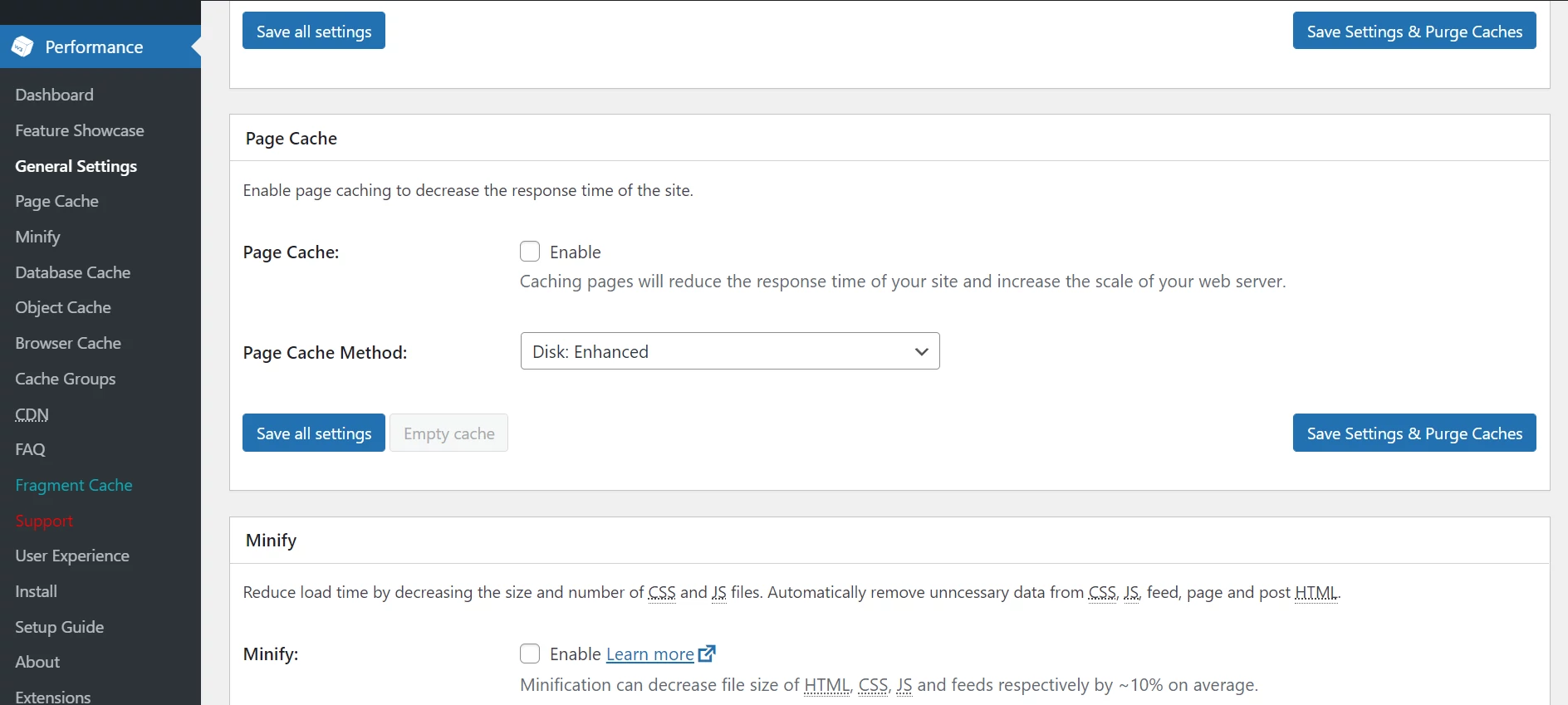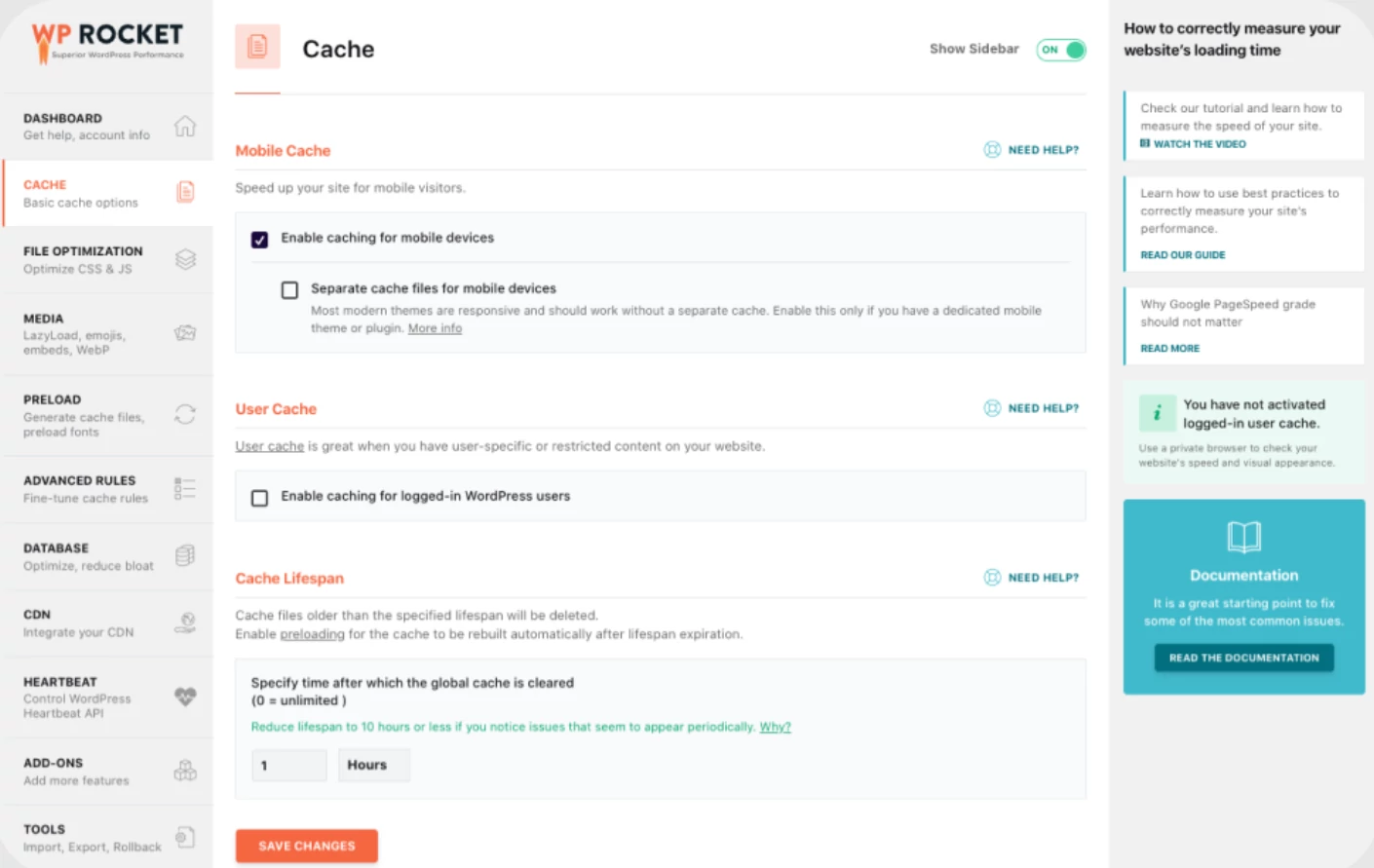W3 Total Cache is one of the oldest WordPress caching solutions. It is active on over a million sites and has a good rating of 4.4. Even though it is a premium caching plugin, WP Rocket is active on over a million sites.
Is W3 Total Cache better than WP Rocket or vice versa? Which extension is easy to use? Below, we’ve compared these two WP website optimization extensions.


Caching methods
W3TC allows users to choose one of these caching methods – Disk Enhanced and Disk Basic. If your site is hosted on a VPS or dedicated server, you can enable APC, xCache, eAccelerator, WinCache, Memcached, and Redis. W3TC supports the preloading feature. WP Rocket supports disk caching, and it can also preload the caches to boost the site’s performance.
Minification
W3TC lets users choose the module they want the plugin to use to minify the files. It supports these JS modules – JSMin, Google Closure Compiler, Narcissus, YUI Compressor, and these CSS modules – CSS Tidy, and YUI Compressor. Like page caching, W3TC supports multiple disk caching methods. WP Rocket doesn’t let you choose the minifier module, but it uses a robust algorithm to minify and combine files. This extension lets users enter the files that it should ignore while generating the minified files. W3TC allows users to activate the regular expression method of matching file names and users can configure it to not insert minified CSS/JS files on certain pages.
Database/font optimization and DB caching
W3TC comes with an option to activate Database Caching. You can configure it to cache queries of certain types and queries that feature WP constants. You can set the time for which you want W3TC to cache queries. WP Rocket lets you optimize database tables by finding and deleting post revisions, auto drafts, spam comments, and more.
WP Rocket can preload font files of your choice. It can also load font files asynchronously and add the display=swap parameter to the font URL. To improve the font file’s loading time, WPR can add the preconnect resource hint to the page.
Lazy loading
The two WP caching plugins support lazy image loading. W3TC can process background styles, and it can ignore images whose links or embeds have certain words. WP Rocket not only supports the lazy loading of images but can also lazy load videos and iframes. You can configure it to not lazy load images/videos on a specific page of the site. If you’re using an older version of WordPress, you will find the lazy loading feature of the two extensions useful, as only the newest version of WP has a lazy-loading function.
Critical CSS
Critical CSS can make a big difference in page speed scores. In my perspective, it should be a part of every caching plugin. WP Rocket is the only popular WordPress caching plugin that can generate critical CSS and insert it into the site’s header. W3 Total Cache Free or Pro version doesn’t generate critical CSS.
Browser caching
W3TC allows users to set last-modified header, and entity tags, specify cache-control policy and enable GZip/Brotli compression for HTML, CSS, and JS files. It lets users enable HSTS and add X-frame-options, X-XSS-Protection, X-Content-Type-options, etc to the page headers. If you’re using WP Rocket, you don’t have to do anything to enable browser caching, as the plugin will automatically add the necessary expires headers to the responses.
WebP support
W3TC comes with an optional image service module that lets you convert JPG/PNG format images to WebP format. This service uses the resources of W3TC servers to convert photos from one format to another. According to Bold Grid, this service is secure. When the conversion is complete, the pictures are deleted from the server. The Image Service module of W3TC lets you select the compression algorithm the extension should use while converting the photo. It can convert all images the WP CMS has saved to the uploads folder to WebP format automatically. WP Rocket won’t create WebP format pictures for you. You can use the tools we’ve shared in our fix the serve images in next-gen formats article for converting photos from one format to another.
Pricing
The W3TC free edition is available for download in the WordPress repository. Its premium version costs 99 dollars per year. W3 Edge has launched only one subscription plan for W3TC, and you can activate this plan only on one website. If you want to use W3 Total Cache Pro on your other site, which is not a part of the WP multisite setup, you will have to buy an additional license for the plugin by paying the same amount.
Three plans of WP Rocket are available for purchase for a price starting at 49 dollars – Single, Plus, and Infinite. The Infinite subscription plan lets you use the plugin on unlimited sites, and the Plus plan enables you to use the extension on three websites. As the name suggests, the Single plan supports one website only. The Infinite, Plus, and Single plan cost 249. 99 and 49 dollars only.
Which plugin is better?
Even though W3 Total Cache gives you more control, it is complex and difficult to set up. WP Rocket, on the other hand, is easy to set up on a WP site. W3 TC has modules that won’t benefit the users. It also has some useless features. For example, it has a database caching module that gets enabled during the setup process. When full page caching is enabled, caching of queries doesn’t make any sense as the pages won’t run any SQL queries. The plugin just has to send the page which is in its cache instead of giving control over the webserver and PHP.
Another bloat/time-wasting feature that comes with W3TC is the JS/CSS minifier module. Most WordPress users won’t know the differences between JSMinifier, Closure Compiler, YUICompresser, etc, and won’t know which module generates minified files quickly. The users will have to test the modules one by one and keep the one that doesn’t break the site’s layout after minifying the JS/CSS files.
WP Rocket, in addition to minifying files, and enabling browser caching, can also optimize Google Fonts and add critical CSS to the site’s pages.

